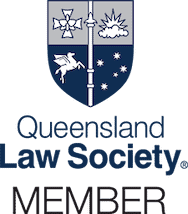Making a Workers' Compensation Claim for Psychological Injury
Workers who suffer from work-related psychological injuries can secure substantial workers’ compensation and damages payouts, if they succeed. However, these claims can be difficult to prove and there are pros and cons for individuals to consider, when making a claim in Queensland.
Understanding Psychological Injury in the Workplace
What Constitutes a Psychological Injury?
In Queensland, a worker needs to prove a psychiatric illness or psychological disorder to establish an entitlement to workers’ compensation benefits. Merely having psychological symptoms or stress without a diagnosis doesn’t suffice. A worker needs to demonstrate their experience of a recognised psychiatric illness.
Common Causes of Psychiatric Injuries in the Workplace
Workplace psychiatric injuries can arise in many ways. Certain events can lead to workers’ compensation claims for these injuries and the typical causes of psychiatric injuries in the workplace include:
- Bullying and harassment
- Excessive workload
- A lack of appropriate training
- Toxic managers
- A lack of procedural fairness or natural justice
- Breach of workplace policies, workplace health and safety legislation or industry standards
- A traumatic workplace event
Examples of Recognised Workplace Psychiatric and Psychological Injuries
Some examples of psychiatric disorders which may arise out of employment include:
- Adjustment Disorders
- Major Depressive Disorder
- Post-Traumatic Stress Disorder
- Substance-Related and Addictive Disorders
The Claim Process: From Documentation to Decision
Proving a Psychiatric or Psychological Disorder
To prove a psychiatric or psychological disorder, a worker will require medical evidence. Typically, WorkCover/self-insurers give greater weight to evidence from a psychiatrist or a psychologist than to a report from a general practitioner. In workers’ compensation claims, the worker must prove their injury.
Making a Successful Claim
To make a successful workers’ compensation claim for a psychological injury, an individual must prove they suffered an injury which arose out of, or in the course of their employment.
The worker’s employment must be a “significant contributing factor” to the injury. The Act provides an inclusive definition of the word injury. Injuries include aggravations of pre-existing injuries and that is useful for workers with pre-existing mental illness.
A psychiatric or psychological disorder will not be considered an “injury” for the purposes of the Act where it arises out of:
- reasonable management action
- a worker’s expectation or perception of reasonable management action
- action taken by WorkCover, a self-insurer or the Workers’ Compensation Regulator relating to the worker’s application for compensation.
The Act gives examples of “reasonable management action taken in a reasonable way”. Reasonable management action includes actions taken to transfer, demote, discipline, redeploy, retrench or dismiss the worker. It also includes actions to not award promotions, or other benefits connected with the worker’s employment.
If the worker’s employment was a significant contributing factor, then to reject the claim, the insurer must be satisfied that the reasonable management action of the employer displaces a view that the claim should be one for acceptance. If a worker can establish that, on balance, the injury did not arise out of reasonable management action, then the claim should be one for acceptance.
Due to the threshold that a worker must meet, the scheme often demands an employer’s wrongdoing for a worker to access statutory benefits.
Statistical Overview: Success Rate of Psychological Injury Claims in Queensland
Workers with psychiatric or psychological work-related injuries often struggle more to get support through WorkCover or self-insurers than workers with physical injuries.
This is because workers with physical injuries do not face the same onerous statutory test. The scheme positively discriminates in favour of physically injured workers. Physically injured workers are not required to prove that their injury did not arise out of reasonable management action. They need only prove that their injury arose out of or in the course of their employment and that their employment was a significant contributing factor to the injury.
According to the Queensland workers’ compensation scheme statistics published in 2019-2020, 5.9% of WorkCover claims were for pure psychiatric injury. WorkCover rejected 54.4% of these claims and rejected only 7.4% of cases overall. The Workers’ Compensation Regulator overturns approximately 25% of the decisions made by insurers, upon review.
Challenging a Rejected Claim
If the workers’ compensation insurer denies a worker’s application for compensation, the worker can request a review. Workers can submit a review to the Workers’ Compensation Regulator within three months after getting the insurer’s written decision. The Regulator reviews the case and can either confirm, replace, or modify the initial decision.
Compensation and Benefits
Immediate Medical Expenses and Support
As of July 2020, Queensland workers’ compensation insurers must take all reasonable steps to provide reasonable support to workers suffering psychological symptoms, while they are determining whether the claim should be one for acceptance.
This does not include fees for hospitalisation or weekly wage compensation. It does, however, allow an individual to receive treatment that was previously unavailable through the scheme until a claim was accepted.
Workers can also seek funding for their treatment elsewhere, for example, through a mental health plan prepared by their general practitioner or through private health insurance (if held).
Workers wait an average of 32 days in Queensland for their psychological or psychiatric claim to be determined. It is beneficial to receive treatment as soon as possible; delays do not assist the worker’s mental health and early intervention is key to optimal recovery outcomes.
What are the workers’ compensation payouts for psychological injuries?
Once a worker’s statutory claim is accepted, a worker will be entitled to statutory benefits under the Act. The statutory benefit payouts include:
- Weekly wage compensation – up to $399,377 (216.5 x $1,844.70 (Queensland Full Time Adults Ordinary Earnings as published by the Australian Bureau of Statistics as at 1 July 2024)
- Lump sum compensation – up to $398,735
- Medical and hospital expenses
Common law claims for psychological injury
A work-related injury can have long-lasting impacts, and as a worker with an accepted statutory claim, you may be entitled to even more compensation through common law claims.
With the right support and guidance, you could be eligible to receive substantial damages to cover many aspects of your losses.
Common law damages payouts include:
Post-traumatic stress disorder compensation: first responders and other eligible workers
- General damages – up to $442,195
- Past and future loss of earnings - up to $5,534 per week until retirement age
- Lost superannuation benefits
- Treatment, medication, surgery, hospital and travel costs
As of 20 May 2021, the Workers’ Compensation and Rehabilitation Act 2003 (Qld) was amended to provide first responders and other eligible workers access to workers’ compensation benefits, where they experience ‘traumatic incidents’ in their work.
Where these workers are diagnosed by a psychiatrist with post-traumatic stress disorder (PTSD) in accordance with the diagnostic criteria provided under DSM5, the PTSD is taken to be an injury for the purposes of the legislation provided that:
- the PTSD arose out, or in the course of, the worker’s employment; and
- their employment was a significant contributing factor to the injury,
thereby avoiding the reasonable management action test applicable to other workers.
Workers who can access these entitlements include:
- Ambulance officers
- Triple zero call centre operators
- Authorised officers under the Child Protection Act 1999 (Qld)
- Corrective services officers
- Fire service officers
- Members of the State Emergency Service or an emergency service unit
- Members of the rural fire brigade
- Police officers
- Youth justice staff members
- Doctors or nurses employed in emergency and trauma care, acute care, critical care and high-dependency care
- Qualified mine rescue workers
Timeframes and Deadlines
WorkCover claim time limit in Qld
Strict time limits apply in relation to claims for workers’ compensation. An application for statutory benefits should be submitted to WorkCover or the relevant insurer within six (6) months of first seeking medical treatment for the injury.
Workers who have not submitted a claim within that timeframe may still be entitled to seek compensation. However, it is recommended that those individuals seek legal advice regarding their entitlements and the claims process, so as not to prejudice their interests.
What is the limitation period for a common law workers’ compensation claim?
A three (3) year general limitation period applies in common law workers’ compensation claims for damages. This means that a worker must lodge a Notice of Claim for Damages with WorkCover/the self-insurer and the employer, within three (3) years of the date of their injury.
The three (3) year limitation period can be extended in a number of circumstances and these include:
- If a worker is provided a Notice of Assessment over 2.5 years from the date of their injury, then the time limit is extended by six (6) months from the date on which the Notice of Assessment is given.
- If a worker disagrees with the degree of permanent impairment contained in the Notice of Assessment referred to in paragraph (1) above, then the time limit is extended by six (6) months from the date on which the a Medical Assessment Tribunal decides the degree of permanent impairment.
- If a worker requests a permanent impairment assessment no more than three (3) years from the date of their injury and the insurer fails to issue a Notice of Assessment before the date three (3) years from the date of the injury, then the time limit is extended by six (6) months from the date on which the insurer gives a Notice of Assessment.
- If a worker disagrees with the degree of permanent impairment contained in the Notice of Assessment referred to in paragraph (3), then the time limit is extended by six (6) months from the date on which the Medical Assessment Tribunal decides the degree of permanent impairment.
- If the question of claim acceptance is the subject of a review or appeal and the claim is accepted more than three (3) years from the date of the injury, then the time limit is extended to six (6) months from the date on which the claim is accepted.
How long does it take for a common law claim to settle?
Common law claims for workers’ compensation can resolve within nine (9) months of their commencement. However, there are a number of different factors which can impact upon the duration of a common law claim, including:
- the attitudes of the parties;
- the issues in dispute;
- how quickly each side can prepare their case;
- the stage at which the matter is finalised.
Navigating Workplace Implications
Challenges faced by workers who make claims
Over half of all workers’ compensation claims for psychiatric and psychological disorders in Queensland are rejected by insurers, at first instance.
The claims process is stressful for workers. They are poor advocates for themselves because they are unfamiliar with the claims process and particularly vulnerable due to their mental state. The stress caused by the claims process is not connected with a worker’s employment and it is not, of itself, compensable under the Act.
Psychological and psychiatric injuries are often complex and may involve many workplace interactions over a period of time. It is necessary for medical experts to identify the main stressors which caused a worker’s injury.
The worker must then prove that the stressors do not displace a view that the claim should be one for acceptance. For example, on balance, the relevant stressors are reasonable management action, then the claim may be rejected. The temptation to adopt a scatter gun approach and make every workplace interaction relevant to the claim often unnecessarily complicates a case and results in claim rejection.
Protections for workers with accepted claims
Under the Act, individuals with accepted claims for psychological injuries are protected workers. This means that an employer cannot dismiss a worker by reason of their injury for a period 12 months.
Queensland employers face a penalty of up to 40 units under the Act for dismissing a worker due to their injury.
Individuals suffering from a psychological injury may also be concerned that a claim could impact their future job prospects in their chosen career. For people in this situation, it is necessary to weigh the benefits of pursuing compensation and damages, against the potential impact to their career. This is also a relevant consideration in quantifying their damages in any common law claim. That is, this may justify a higher assessment for future loss of earnings.
How Denning Insurance Law can assist
At Denning Insurance Law, we understand how overwhelming and stressful it can be to navigate a common law claim for a psychiatric injury. That’s why we are here to provide the support and guidance you need every step of the way.
During your FREE initial telephone consultation with Accredited Personal Injury Law Specialist and Principal, Kate Denning, you can expect a compassionate and understanding ear. She will take the time to listen to your unique situation and answer any questions you may have about the common law claims process.
Together, we will discuss the potential for common law damages, realistic timeframes for resolving your claim, and provide an honest assessment of liability. We want to make sure you have all the information you need to make informed decisions.
At Denning Insurance Law, our goal is to provide you with the peace of mind and confidence you need during this difficult time. Contact us today to schedule your FREE consultation.





